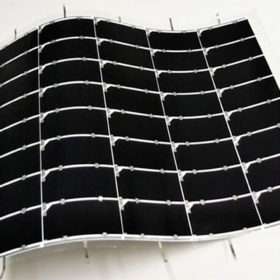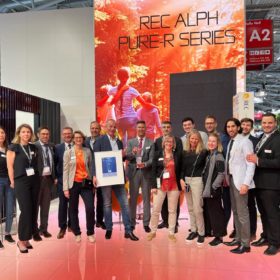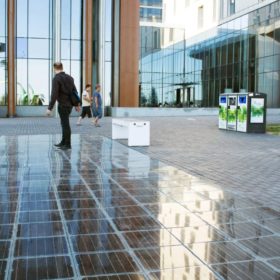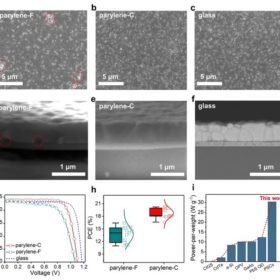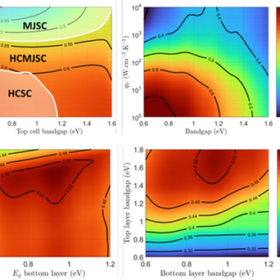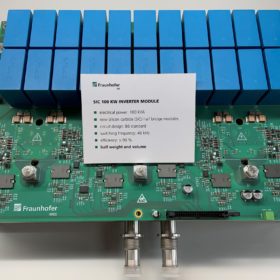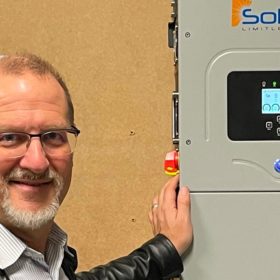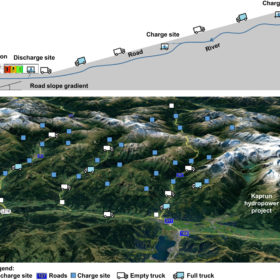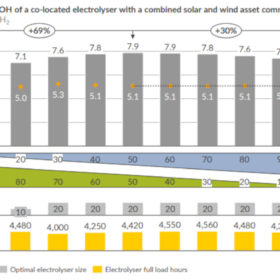Sharp achieves conversion efficiency of 32.65% in flexible, lightweight solar module
The new prototype uses a triple-junction compound design, which sandwiches the solar cell between layers of film. The module is expected to be used in a variety of vehicles, an application that demands high efficiency and lightweight construction. Its conversion efficiency bests that of a similar Sharp module developed in 2016, which notched an efficiency of 31.17%, at the time a world record.
REC: “Our future is in HJT”
While many solar manufacturers are as yet undecided about which PV cell technology they will choose for their next high efficiency expansions, for Singapore-based REC, the future is HJT. pv magazine spoke to Cemil Seber, the managing director at REC Solar EMEA GmbH at the Intersolar Europe 2022 trade show, to dig deeper into these manufacturing plans.
New solar module for pavement applications
Hungarian tech company Platio Solar has developed a new solar PV paving line featuring monocrystalline and polycrystalline cells with clear or opal glass.
Ultra-thin inverted perovskite solar cell with 20.2% efficiency
Chinese scientists have developed an ultralight solar cell with perovskite film based on a 3-µm-thick polymer. It purportedly has a power conversion efficiency in line with that of perovskite cells of conventional thickness.
Reaching beyond efficiency limits
An international group of scientists experimented with a concept known as a “hot junction” carrier cell, which holds the potential for efficiency beyond the theoretical limits assumed today. The group modelled various cell designs, seeking those that would be least affected by imperfections in the actual materials, compared to how they are modelled.
Downsizing gallium nitride inverters
A German consortium led by Fraunhofer IEE aims to bring gallium nitride inverters closer to commercial viability. The primary goal of the research project is the optimisation and miniaturisation of inverters, including passive components such as cooling systems, casings, and mounting structures.
Redflow announces integration with US inverter company
Australian redox-flow battery specialist Redflow has upped the ante on its plans to expand into the United States market, announcing it has completed testing that will pave the way for its battery energy storage system to be used in conjunction with hybrid inverters manufactured by United States solar engineering company Sol-Ark.
Floating solar, tidal energy plant goes online in China
CHN Energy has linked a 100 MW floating PV plant to an existing 4.1 MW tidal energy system in China’s Zhejiang province. The tidal power station was commissioned in 1980 and is the fourth-largest system of its kind in the world.
Storing hydropower via regenerative braking in electric trucks
An international research team has proposed the use of water from high-altitude rivers and regenerative braking in electric trucks to store electricity for reuse in power networks, or for transport purposes.
Green hydrogen price may drop to $7.5/kg by 2025
Aurora Energy Research says in a new report that maximum green hydrogen project profitability could be achieved when solar and wind power plants are combined with electrolysers.
